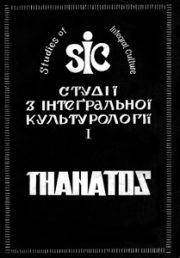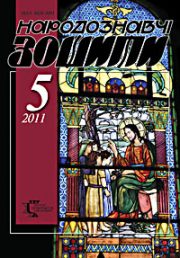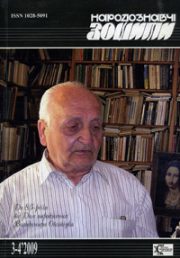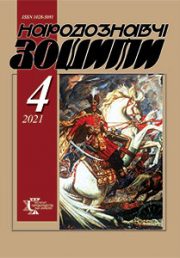The Ethnology Notebooks. 2022. № 4 (166), 747—751
UDK [94-057.4:140.8П.Куліш]:[39(=161.2):001(470+571)]”18″
DOI https://doi.org/10.15407/nz2022.04.747
KOKOSH Artem
- ORCID ID: https://orcid.org/0000-0003-4785-2190
- Doctor of Philosophy, Historical Sciences and International Relations,
- Lviv Polytechnic National University;
- Ukrainian Free University,
- 12 Stepana Bandery str., 79000, Lviv, Ukraine,
- Contacts: e-mail: akokosh22@gmail.com
Abstract. The timeliness lies in new ideas about place of Panteleimon Kulish in history, as a scholar who could distinguish Ukrainian nation in history science of Russian Empire.
The goal lies in describing changes of Panteleimon Kulish’s views due to restrictions of Ukrainian national life in Russian Empire.
The object of the article is Panteleimon Kulish as a historian, however, a subject is historical views on Ukrainian national sovereignty in Kulish’s version.
The methodological base of the paper consists in historism and objectivism principles that consider facts in their historical and spatial relationships. The research paper uses the following research methods: descriptive, problematic and chronological, comparative and historical, and the method of historiography analysis and synthesis. The paper is structured according to the goal.
Based on Panteleimon Kulish’s sources of XIX century and on literature of XIX—XXI centuries the work consists of three chapters. Main levels of P. Kulish’s becoming a historian, influences of European traditions and Kyiv cultural groups on the historian’s views are described in the first chapter — «Formation of Panteleimon Kulish’s History Views». There is the information about his first steps in researching Ukrainian history: getting an ethnographical material under M. Maksymovich’s and V. Krasov’s control; an ethnographical travel to Kyiv region; meeting with M. Grabowski and writing the poem «Ukraina»; getting legends about the Zaporizhia Cossacks, haydamaks and times of Polish authority on the Right side of the Dnipro. After enough quantity of materials Panteleimon Kulish participated in cultural life, in particular he joined the creation of Cyril and Methodius Brotherhood. And for this participation the historian was exiled to Tula. Such definitions as a man, people, history are described in views of Panteleimon Kulish.
Keywords: Panteleimon Kulish, Russian Empire, views on history.
Received 4.08.2022
REFERENCES
- Romanchenko, I. (1943). Kulish — Biographer and Critic of Gogol. Romen [in Ukrainian].
- Yas, O. (2007). Panteleimon Kulish’s Historical Views in the Light of Intellectual Metamorphoses of 1870—80ies. Historiografic researches of Ukraine, 17, 78—106) [in Ukrainian].
- Kokosh, A. (2019). The Problem of the Ukrainian Ethnology in Panteleimon Kulish’s Scientific Heritage in: Revista de Etnologie si Culturologie (Vol. XXV, pp. 125—131).
- Kulish, P. (2005). Tale of the Ukrainian People. Kyiv [in Ukrainian].
- Andreiev, V. (2001). Kulish as a Historian of the Cossacks in Doroshenko’s works. Naukovi zapysky of the Institute of Ukrainian archeographie and sources of M. Hrushevskiy NASU (Vol. 6, pp. 286—291). Kyiv [in Ukrainian].
- (1990). Cyril and Methodius Brotherhood: in 3 vol. (Vol. 2). Kyiv [in Ukrainian].
- Kulish, P. (2012). The Call Letter to the Ukrainian Intelligentsia. Letters From Khutir. Kyiv: Ukrainian press-group [in Ukrainian].
- Kyrylyuk, Ye. (1944). Kulish — Folklorist. Ukraina, 10, 37—39 [in Ukrainian].







